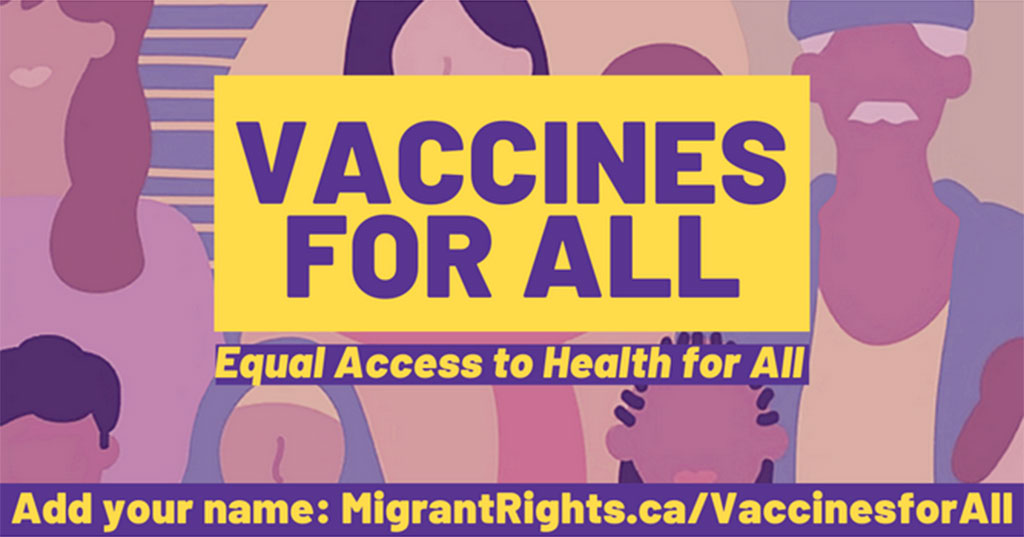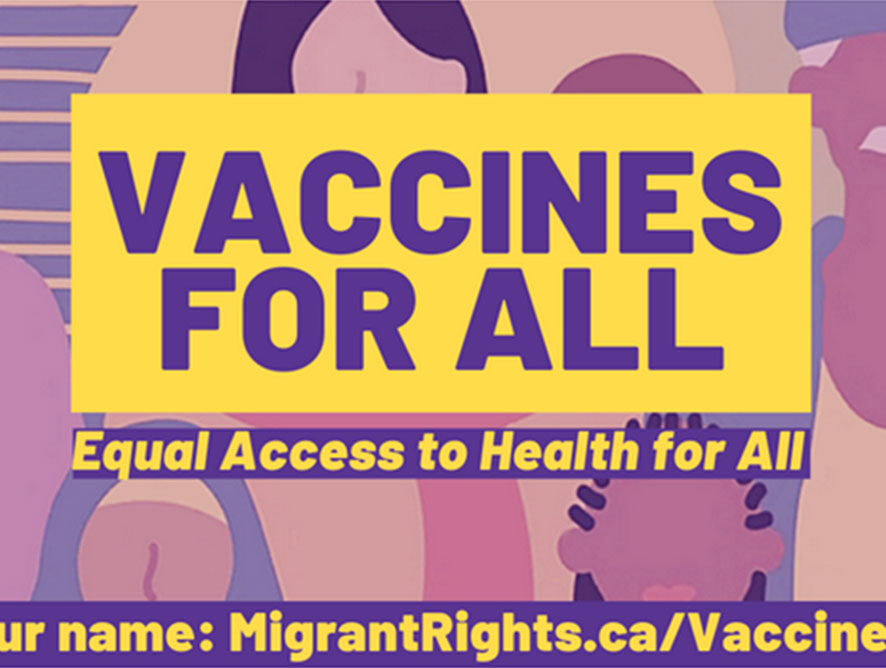
According to Covid-19 Tracker Canada, as of Tuesday, more 1,124,229 doses of Covid-19 vaccines have been administered across Canada. COVID19Tracker.ca is the first tracking project in Canada that allows others to freely and easily access Covid data in real-time. In Alberta there are 124,325 individuals that were vaccinated. In a press conference in Calgary, Premier Jason Kenney said that Alberta is set to run out of COVID-19 vaccine supply for first doses. “We have quite simply run out of supply,” Kenney said. “Yes, we’ll get more vaccine in the coming weeks and some more doses this week, but we need to make adjustments today to accommodate this lack of supply.”
As supplies slow down, many Albertans worry. Last year it was the most vulnerable Albertans that were affected by the Covid-19 pandemic. There are at least 1.8 million migrant and undocumented residents in Canada. Alberta is home to many of them. This group includes seasonal agricultural workers who are essential to Canada’s food supply, care workers in long term care homes, and taking care of children, sick and the elderly. It includes cleaners in hospitals and homes, and it includes many warehouse, food delivery and grocery store workers. Many of Canada’s essential workers are migrant and undocumented. And many of them are Filipinos.
Migrant and undocumented people are at the forefront of the COVID-19 crisis. While they are often working in essential jobs that sustain our communities, they are excluded from services and protections. According to Syed Hussan the Coordinator of Migrants Rights Network (MRN), “Some of the highest rates of COVID-19 infections are for migrants in congregate living and working conditions, like farms, factories, and warehouses, and those who are homeless or incarcerated”. MRN is a national network of migrant justice organizations across Canada.
Many of these migrants don’t have a health card or coverage. Those who are undocumented are afraid of accessing healthcare in case their personal information is shared with federal immigration enforcement. In some cases, employers have already started to threaten migrants with job loss and deportation if they aren’t vaccinated. In Alberta, Migrante is spearheading a campaign called AHS for All. “In times of global pandemic, it’s important to protect the most vulnerable,” said Jay Zapata, Vice Chairperson of Migrante. “They are undocumented, they are afraid. But their health and safety is also our community’s health and safety”.
The Migrants Rights Network along with its member organizations which includes Migrante Alberta call on federal and provincial governments to ensure full access to the COVID-19 vaccine to all migrants regardless of immigration status. They said that Vaccine provision must be free of charge, not require a health card or health card number, be accessible, not collect any ID or addresses, or information about immigration status, and develop alternative mechanisms for tracking vaccine doses. Health authorities must guarantee that any personal information that is collected will not be shared with immigration enforcement or police and not be coercive or mandatory.
The organization is also calling for a comprehensive multi-lingual public education and outreach strategy, as well as training for healthcare providers, should be created. Governments and authorities must coordinate with and take leadership from these migrant-led organizations. It must ensure that migrants can receive the COVID vaccine and testing in a safe, accessible and dignified manner, no matter where they work or live, and without fear of punitive consequences.
All migrants must have access to universal healthcare immediately, regardless of immigration status. Our Filipino community’s safety lies in the protection of all. If you’re interested in supporting the campaign, you may contact Migrante Alberta at migrantealberta@gmail.com


